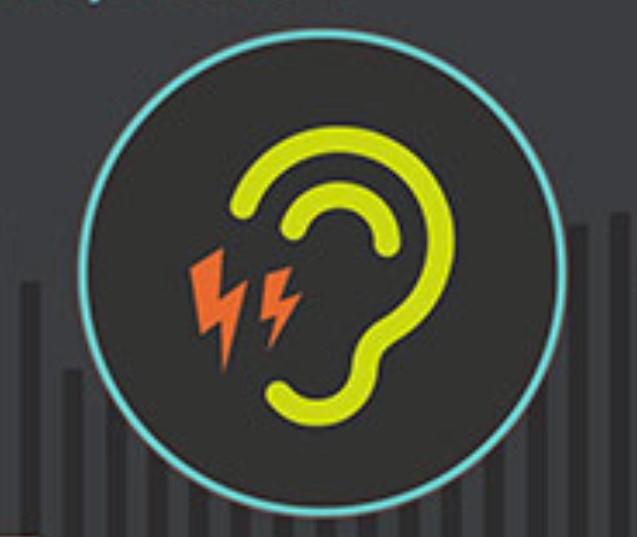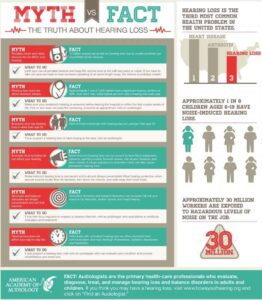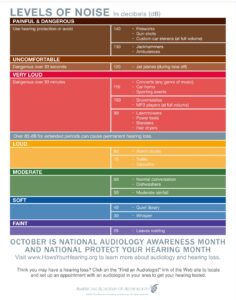
In a world where 2.5 billion people are projected to have some degree of hearing loss by 2050 and over 1 billion young adults are at risk of permanent and avoidable hearing loss, it is essential that audiologists effectively communicate hearing and balance care information to consumers
Hearing Loss and Hearing Aids:
Our hearing connects us to other people. We experience so much of the world around us through sound. Hearing is vitally important for our safety and our social needs. The loss of our hearing can result in isolation from conversations and withdrawal from pleasant social activities.
Five Signs of Hearing Loss:
-
You recognize that someone is speaking to you but you can’t make out the words.
-
You have trouble following a conversation when there is loud background noise.
-
It seems that people and especially women and children, mumble a lot.
-
The volume on your listening devices is set at maximum.
-
You previously worked in or frequented noisy environments, such as rock concerts, construction sites.
Hearing Aids:
Hearing Aids magnify sounds entering one’s ears. If you have hearing loss in both ears, hearing aids for both ears are recommended. There are different types of hearing aids, depending on the nature of the hearing loss.
Prescription Hearing Aids
Hearing aids prescribed by a hearing professional are programmed for an individual’s degree of hearing loss and may be required for significant or complicated hearing loss.
Over the Counter Hearing Aids
Hearing aids are available over the counter for mild to moderate hearing loss.
Insurance Coverage:
Original Medicare may cover exams to diagnose hearing problems but does not cover routine hearing tests or hearing aids for adults. Private insurance and certain plans such as Medicare Advantage and MassHealth Standard and CommonHealth may cover hearing aids with some limitations. Fortunately, hearing aids became available over-the-counter this year, but at a cost. Costs can range from $89 a pair (which does not include an ear exam or hearing test) up to $300 a month or more.
Financial Assistance
Some non-profit organizations provide financial assistance for hearing aids or may provide used or refurbished hearing aids. Contact the National Institute on Deafness and Other Communication Disorders (NIDCD) Information Clearinghouse for more information.
Resources
NIDCD Information Clearinghouse
1 Communication Avenue, Bethesda, MD 20892-3456
Toll-free voice: (800) 241-1044, Toll-free TTY: (800) 241-1055
Email: nidcdinfo@nidcd.nih.gov
AARP Bulletin October 2022


